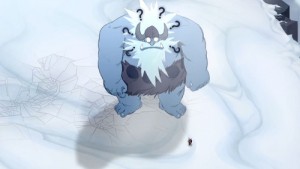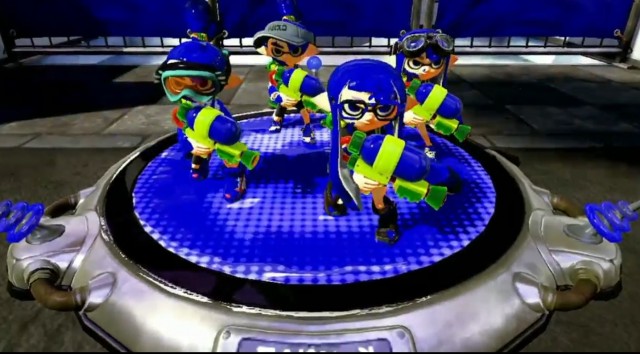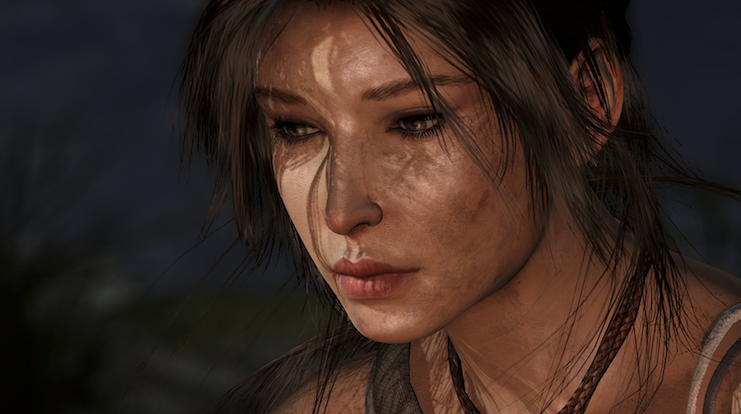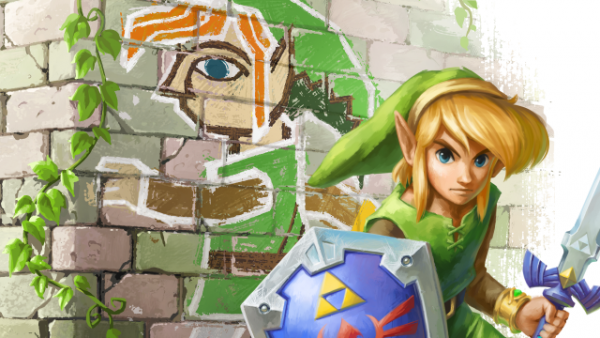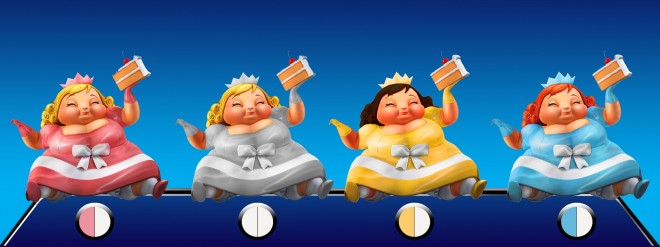With her humongous axe and fire orange braids, I grinned like an idiot as I led Thora, Jotun‘s viking protagonist, from one pissed off giant to the next. Not only does she possess a diverse body type, sturdy and difficult to take down, she’s also unwavering in her courage and that’s a damned good thing. I feel empowered and unbeatable whenever I play as her, able to transport myself into her body and look through her eyes and share her experiences. It’s great when she lifts her weapon and delivers an overhead power attack that involves a great deal of strength. She’s unapologetic in the way she shouts and grunts and wields her weapon. It’s uncommon to see a fuller figured female protagonist, but it’s even more unusual to see a woman that’s physically strong and wielding a weapon as big as she is. Thora is a female character who doesn’t need to be rescued.
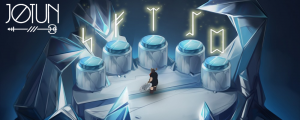 When I first heard about Jotun (Thunder Lotus Games), a game in which Thora is called upon to prove herself to the gods after dying a disgraceful death, I was on the show floor at PAX East. Hungry and drained, my personal limit reached due to the endless crowds and jarring noises, I played Jotun‘s demo as a way to distract myself and decompress. Thora spends most of her time exploring the world, unlocking power ups, activating a healing pond, and fighting monsters. The general world explorations breaks up the monotony of fighting one monster after another.What ultimately sold me was its female protagonist and the fact that she was both strong and unapologetic is her badassery.
When I first heard about Jotun (Thunder Lotus Games), a game in which Thora is called upon to prove herself to the gods after dying a disgraceful death, I was on the show floor at PAX East. Hungry and drained, my personal limit reached due to the endless crowds and jarring noises, I played Jotun‘s demo as a way to distract myself and decompress. Thora spends most of her time exploring the world, unlocking power ups, activating a healing pond, and fighting monsters. The general world explorations breaks up the monotony of fighting one monster after another.What ultimately sold me was its female protagonist and the fact that she was both strong and unapologetic is her badassery.
We need more protagonists like Thora because she disturbs the polarization of men being assigned the role of the slow moving, brutish warriors and women being cast as the physically weak magicians or agile assassins. Tenchu (Acquire, 1998), for example, features a female character who can quickly dash across rooftops, but is weak in combat. It’s a common role that both male and female characters fall into, particularly in RPGs, where women are generally assigned magical roles that are less physical such as healers or summoners. In Final Fantasy VII (Squaresoft 1997), Tifa Lockhart, regardless of her sexualized appearance, shatters that dichotomy because she’s comparable to a boxer in combat. Rather than having a sword or magical powers, her body serves as the weapon, a weapon that she alone controls and wields however she pleases. Despite a few examples here and there of women breaking out of these prescribed roles, roles that likely stem from more traditional ideas about gender, it’s generally atypical to see a woman taking on the role of the fierce warrior.
In Jotun‘s beta players are given access to two separate bosses, Thora doesn’t move particularly fast nor is there much variety in terms of the types of attacks she can perform. She can do a quick swipe or an overhead chop. However, during the course of the game, she gains special powers from various gods as she encounters them and this livens things up. While Thora’s fighting style might sound boring or un engaging, but she’s strong and powerful and that’s worth something (and it is important to remember that the game is still in beta). Like Tifa, she’s in control of her body and the sheer strength within it. Her axe is like an extension of her strong body and spirit. Jotun offers us proof that physically strong women exist and Thora just happens to be one of them. It offers us a positive representation of athletically built women.
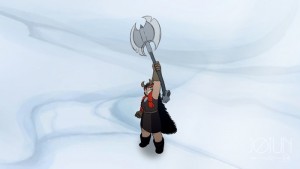 What I like best about the game (so far) is its sole focus on Thora and her personal journey to Valhalla. Though I’ve only played the demo and beta, I’ve yet to see a love interest or anything along those lines. I am not implying that a romantic interest would detract from the story, but I like the singular focus on Thora and the way in which she’s rebuilding her honor and reestablishing her rightful place among the gods. She’s in control of her own identity and how she wants to present herself, which is an empowering thing to witness and experience. The narrative does well to highlight her inner strength, resilience, and determination. Despite traversing vast (often dangerous) lands and taking down monsters as big as mountains, she doesn’t give up.
What I like best about the game (so far) is its sole focus on Thora and her personal journey to Valhalla. Though I’ve only played the demo and beta, I’ve yet to see a love interest or anything along those lines. I am not implying that a romantic interest would detract from the story, but I like the singular focus on Thora and the way in which she’s rebuilding her honor and reestablishing her rightful place among the gods. She’s in control of her own identity and how she wants to present herself, which is an empowering thing to witness and experience. The narrative does well to highlight her inner strength, resilience, and determination. Despite traversing vast (often dangerous) lands and taking down monsters as big as mountains, she doesn’t give up.
The developers have invested a lot of love in the protagonist. I’m excited to see more of Jotun and I’m even more excited to see how Thora develops and to experience that satisfying moment when she finally proves herself to the gods. More than anything, I’d love to learn Thora’s background and her inglorious death. What was her life like prior to purgatory? Was she murdered? Did she lose a battle?
It seems that we will have to wait until the game’s release next month to find the answers to these questions and many more.

